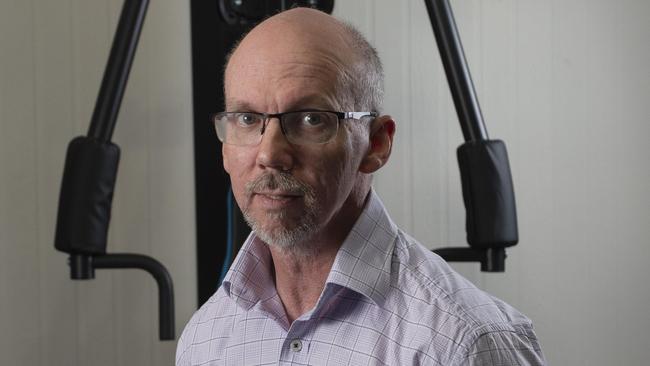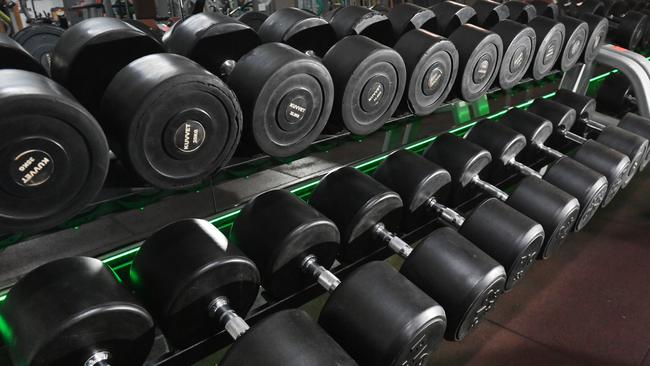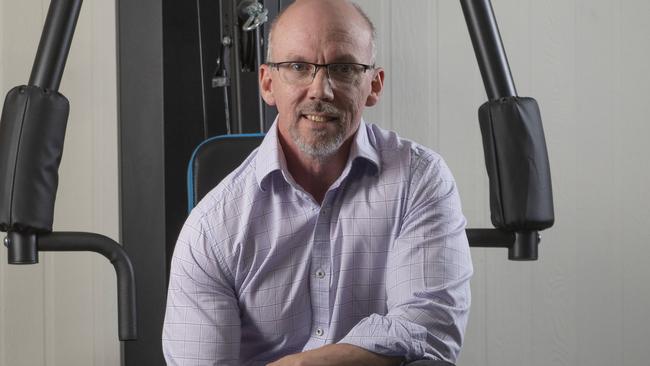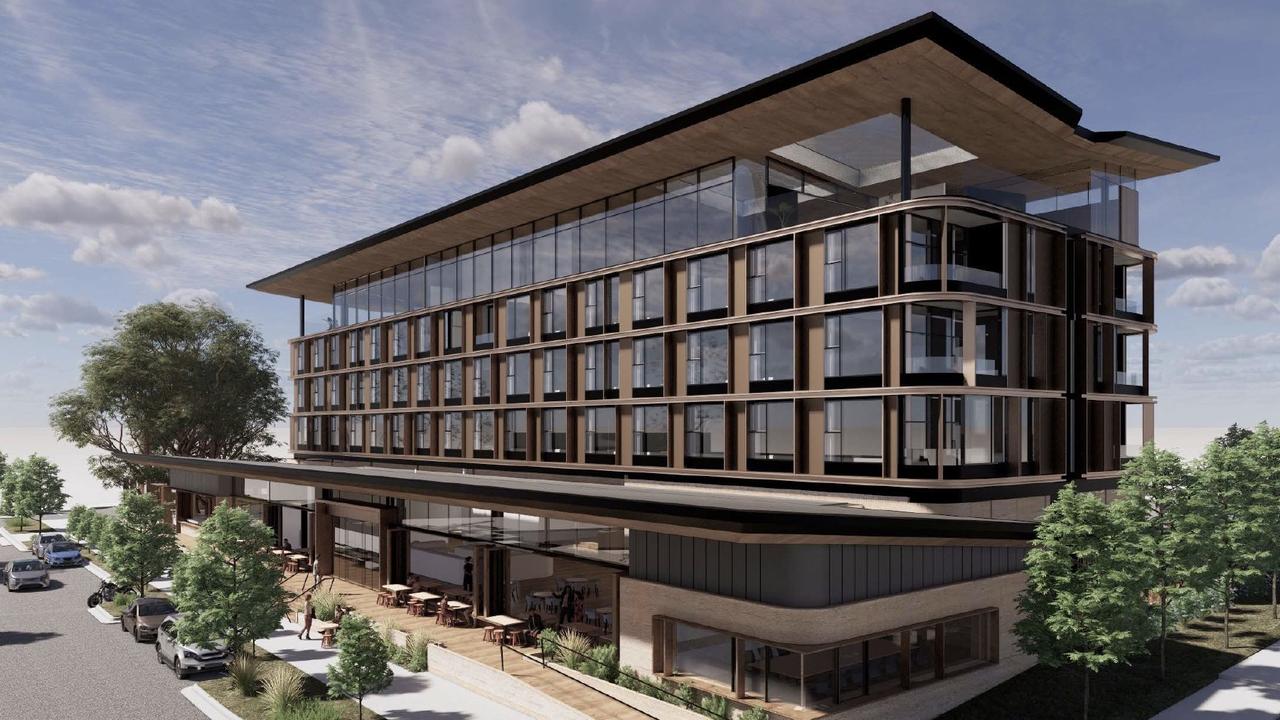’Not just women’: Recovered eating disorder patient Kelly Griffin‘s mission to break stigmas as number of men struggling rises
Men with eating disorders numbers are on the rises and a recovered patient wants to break the stigma surrounding the problem.

Lifestyle
Don't miss out on the headlines from Lifestyle. Followed categories will be added to My News.
CW: This article discusses eating disorders, medical complications, and mental health
With health at the heart of gym bro culture, male gym junkies are probably the last people you’d associate with eating disorders.
But 1 in 3 of the 1.1 million Australians living with an eating disorder are male, yet it’s still considered a women’s health issue.
So when Kelly Griffin took up weightlifting, he never imagined that he’d develop anorexia nervosa.
“The original intent was to go to the gym, get stronger, and feel good about myself then it spiralled into let’s get bigger (...) I was going for that ideal body shape,” the former body builder said.
It wasn’t until after his second body building competition that the then 41-year-old “spiralled into a severe depression and very serious eating disorder.”
“The problem was that it didn’t stop (after the show) and I continued to restrict my eating and exercise excessively,” he said.

This took a heavy toll on his physical health, severely impacting his liver, kidney and heart function leading to multiple hospital stays.
“That first time in hospital was really, really scary,” he said.
“My liver was shutting down (because) my body wasn’t getting enough energy and protein sources.
“I have a naturally low heart rate but it was to the point where I was consistently setting off the heart rate lamps at night-time.
“Even to this day, my heart is nowhere near what it should be.”
It was “exceptionally hard” for his family, particularly his two daughters and wife, who he temporarily separated from.
“My partner certainly went through a significant amount of heartache, we both did and it’ll never be forgotten,” he said.
“It was even harder, for my (then) 15-year-old daughter who was recognising challenges that her friends were going through and using my story to say ‘don’t go down this path’.”
The biggest challenge during his recovery, which took several years, was overcoming the psychological barriers.
“At that time I was struggling with my self-worth and what I got and felt from bodybuilding, and the reactions that I was getting through the community and being on stage gave me value recognition,” he said.

The lack of understanding from health professionals about eating disorders made it even harder, he said.
“They never dived into what was really going on with me or with the other patients.
“They just look at it as a behaviour thing but it’s got nothing to do with food, it’s an underlying psychological challenge that you’re dealing with.”
Men also face an entirely different set of challenges compared to women when reaching out, he said.
“So many more men go through it but don’t say anything about it because they don’t know what it is or they don’t believe it’s that.
“I thought I can’t have an eating disorder, the stereotype is a teenager, female, you don’t normally see middle-aged men going through those challenges but it doesn’t matter who you are – it doesn’t discriminate.”

The Butterfly Foundation’s resources, support groups and helpline played a pivotal role in helping him take back control of his life.
And while he still lives with lasting damage to his bone density and heart, the 47-year-old wants to help others.
“I will forever hate that part of my life (...) I know how much it hurts physically, mentally, emotionally,” he said.
“We need to remove stigma, we need to remove bias, we need to listen and provide more support to those that are going through this, and understand that the behaviour that they’re displaying is a symptom.”
But most importantly, he wants others to know that life is worth fighting for.
“If you’re starting to think unhealthily or feel guilty about food or fitness, then please reach out.
“Don’t wait, don’t battle it alone, you’re not a burden and there’s people that want to support you.”






